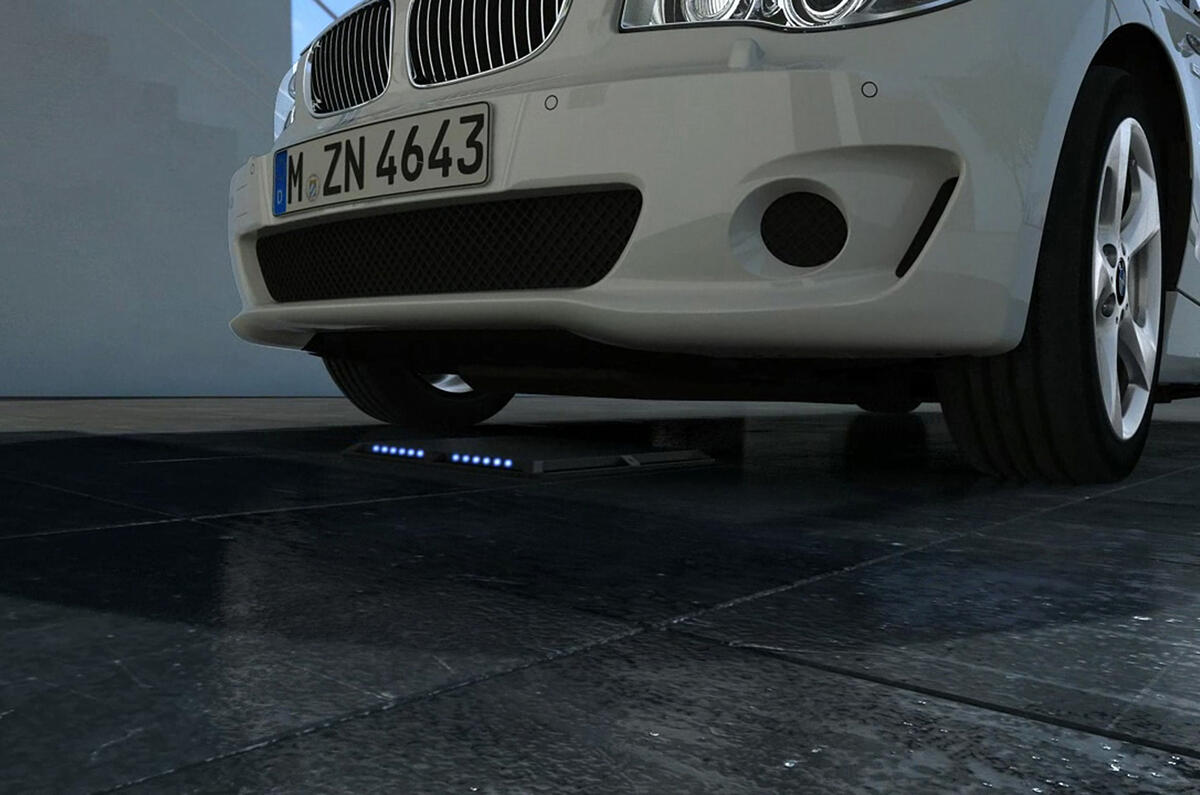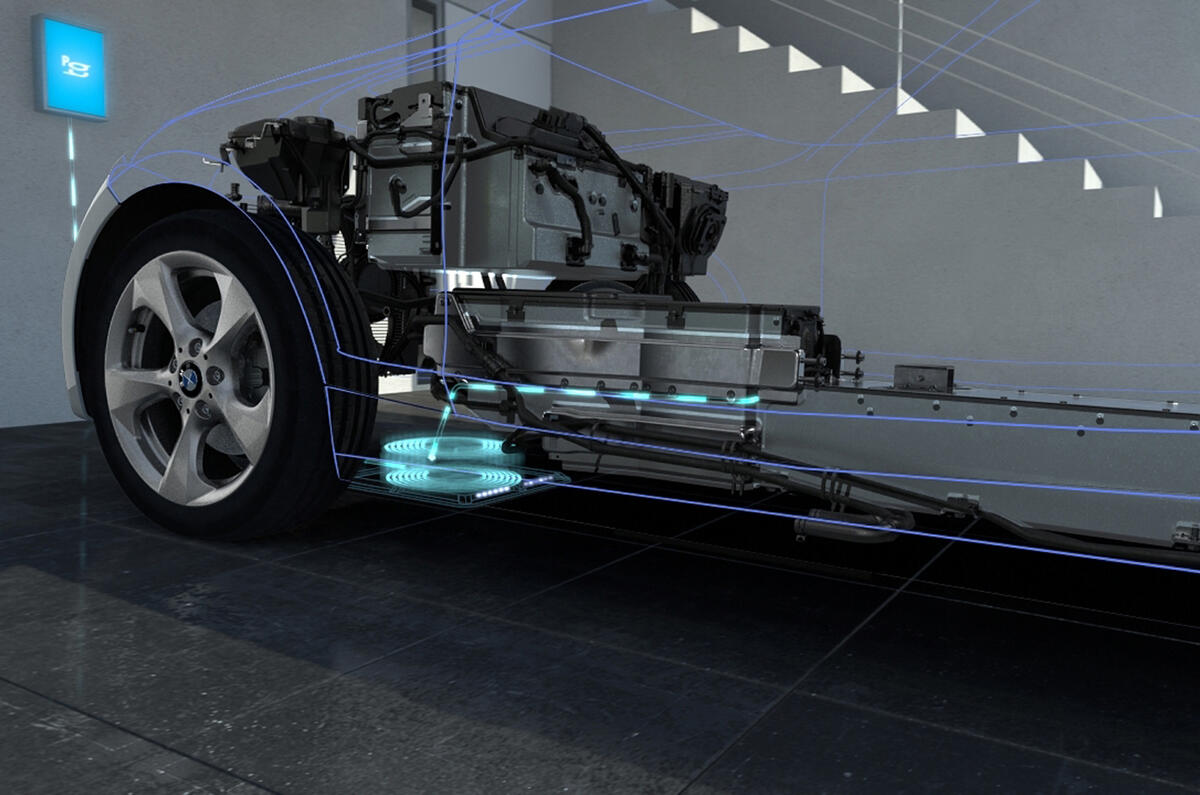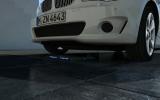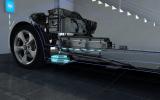BMW is working on a new wireless charging technology, allowing drivers to charge electric vehicles without the need for any cables.
Currently in development as part of a joint venture project with Daimler, the technology means that charging BMW's own i8 sports car can be completed in under two hours.
BMW says the system, which combines two coils - one inside the car and one embedded into the ground alongside a base plate - is up to 90 per cent efficient and can transfer electricity at a rate of 3.6kW. The current is transferred via an alternating magnetic field.
Theoretically, all drivers have to do is position their car over the base plate - which can be acheived via a Wi-Fi connection to monitor the vehicle's location - and activate the process from a button inside the car.
BMW also says the technology has been future-proofed to cope with more complex electric vehicles and larger batteries, and is capable of transferring current at a rate of up to 7kW if required.
The firm isn't the only manufacturer to investigate wireless charging. Nissan and Toyota are both currently working on similar systems, while it has also been suggested that inductive charging could be used under UK roads in the future.
BMW hasn't set a date by which it aims to bring the technology to market, but judging by the rate at which electric vehicle uptake is increasing in the UK - latest figures place sales of alterntively fuelled vehicles up by over 50 per cent in the first six months of 2014 - it would be likely that the system could be in place by the end of the decade.
Get the latest car news, reviews and galleries from Autocar direct to your inbox every week. Enter your email address below:







Join the debate
Add your comment
RD money well spent
The other point is I spent 5 minutes at a petrol station every 400 miles so is spending 30 seconds pluging in at home every 70 miles or so such a chore.
After the madness of Toyota's £42,000 hydrogen car it's good to know they've set some money aside to spent on something sensible.
Fast and fuss free